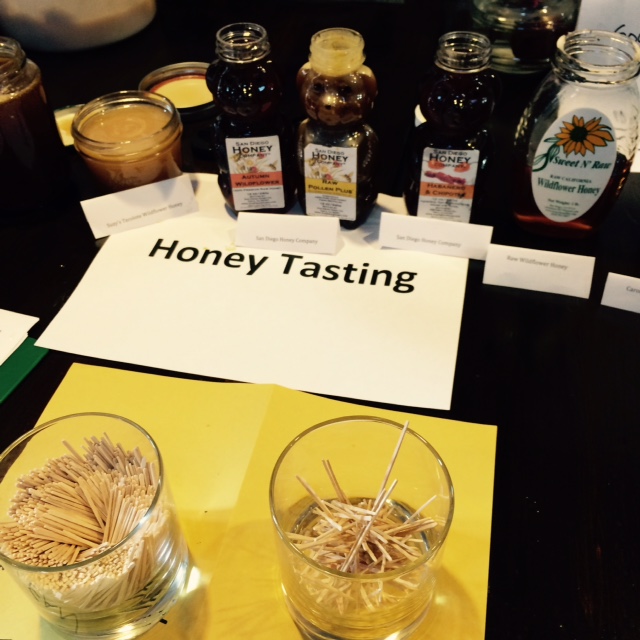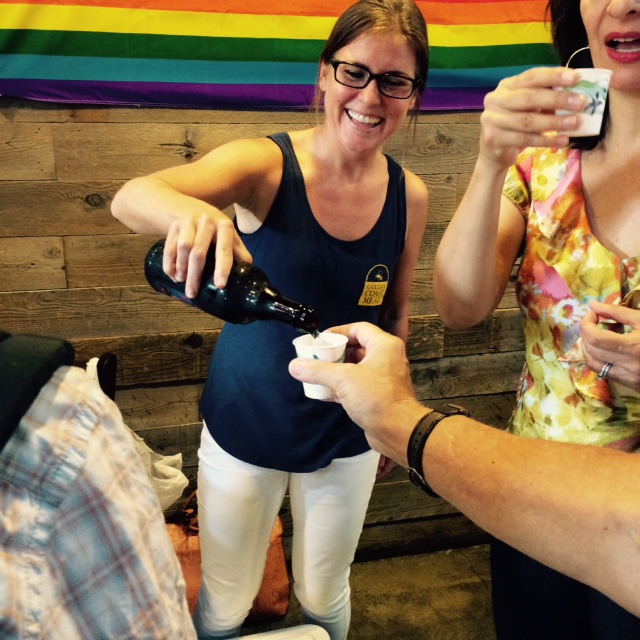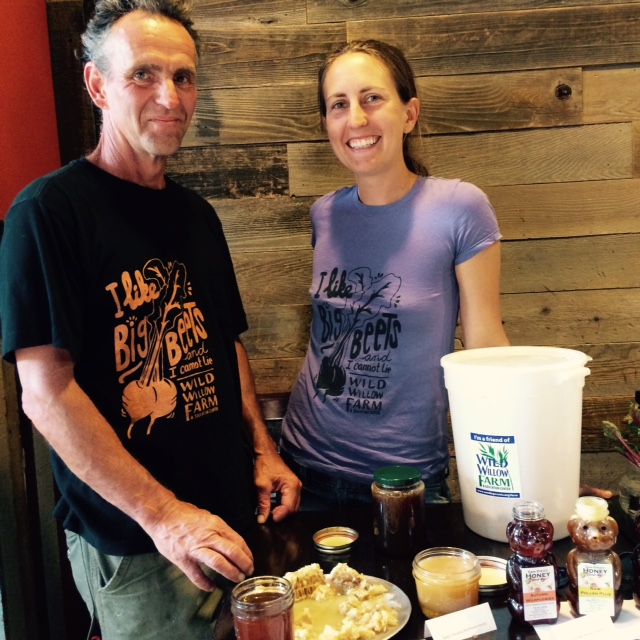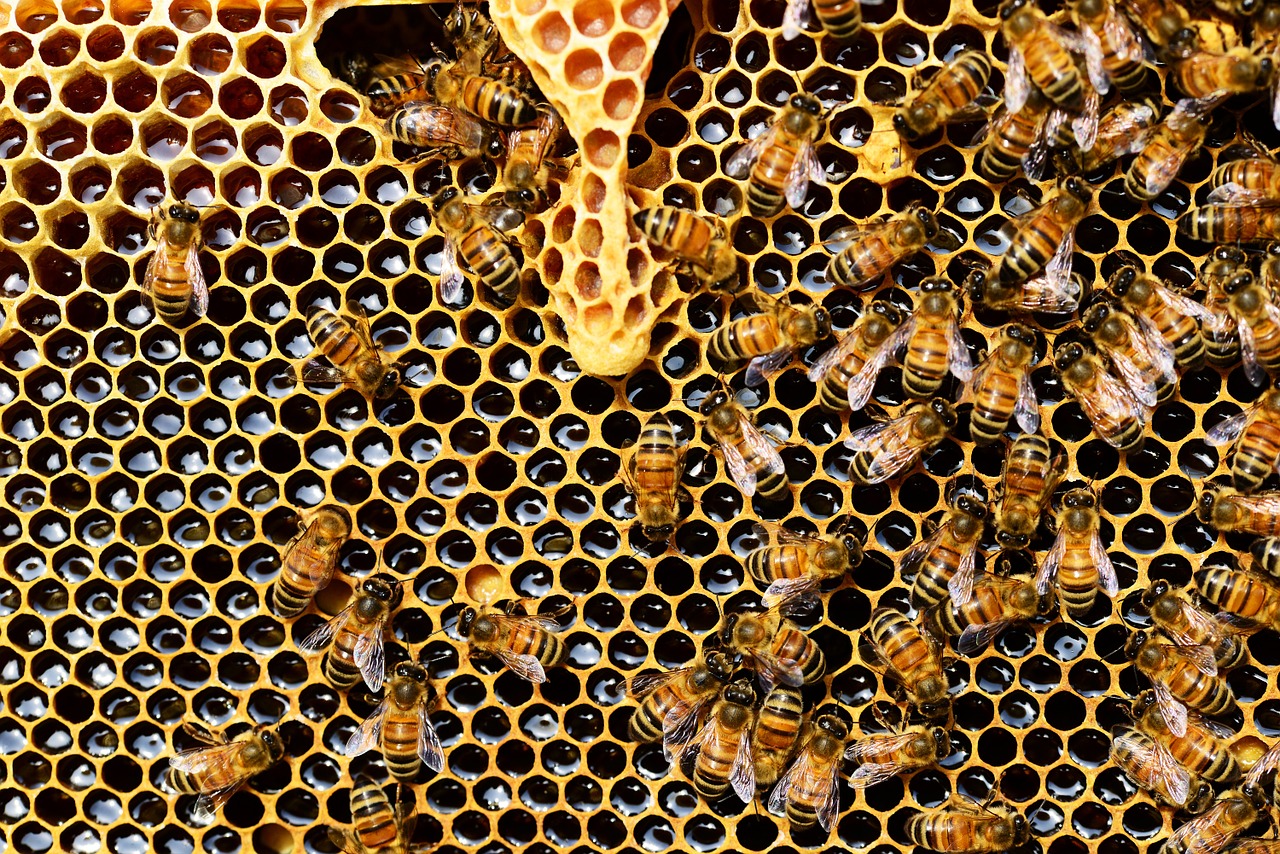Honeybees intuitively know when it’s time to nurture a new queen. So it’s no surprise that when Camille Smith landed in San Diego, the bees took flight to bring her a hive to nurture in preparation for a role as Secretary and Volunteer, Recruitment and Event Planning Coordinator of the San Diego Beekeeping Society.
Smith has always been interested in bees, but it wasn’t until she moved to California in 2008 that she had the opportunity to keep a hive of her own. That summer, three swarms came through her backyard, enticing her to buy a bee box. The bees didn’t return, but a few months later a friend called saying they had caught a swarm. Her forays as a suburban beekeeper had begun.
Over the next few months, she read a numerous books about beekeeping, watched educational videos on YouTube and joined the San Diego Beekeeping Society. From her mentor and working with society members, she learned hands-on how to properly care for bees to help them thrive.
Her initial interest in working bees quickly transformed into heartfelt passion.
“I love working with the bees,” gushes Smith. “It is so amazing how they work completely collectively with no ego. Everything they do is for the benefit of the entire hive. Even at the end of their lives, they go outside the hive to die so their sisters don’t have to clean out their bodies.”
This level of collective thinking inspires Smith in her role bringing people together at the San Diego Beekeeping Society. She and more than 1,000 volunteer members work to educate people about bees and best practices in responsible beekeeping. They visit schools and participate in community events to increase awareness about pollination and bees among people of all ages.
“The more information people have about bees, the more people are aware to not use pesticides/herbicides in their yards,” explains Smith.
The San Diego Beekeeping Society also works to advocate for legislation that is friendlier to bees and beekeeping. They had success a few years ago working with a coalition to loosen restrictions on urban beekeeping and designate best practices for keeping bees in the City of San Diego. More recently, the San Diego Beekeeping Society has worked with the County of San Diego to update their policies to make it easier for beekeepers to comply with the ordinances.
“We’ve made good progress,” says Smith. “We are proud to be doing our little part to help support the bees, and we have more people every month interested in becoming beekeepers.”
Even with growing efforts to support them, bees are not out of danger. Colonies are still collapsing from the combined effects of exposure to pesticides and herbicides, monoculture that limits access to food sources when crops are not blooming, and weakened immune systems from parasitic mites.
What can you do to learn more and support healthy bees?
Like the community-minded bees, together we can do more. Take it from a resident Queen Bee:
“Bees pollinate one third of the crops we eat,” explains Smith. “There is a direct relationship between the bees, our food, and our health. By voting with our pocket books – choosing to support local and sustainable food production through farmers’ markets and CSA – the food vendors will have to adjust. And the bees will fare better too.”







